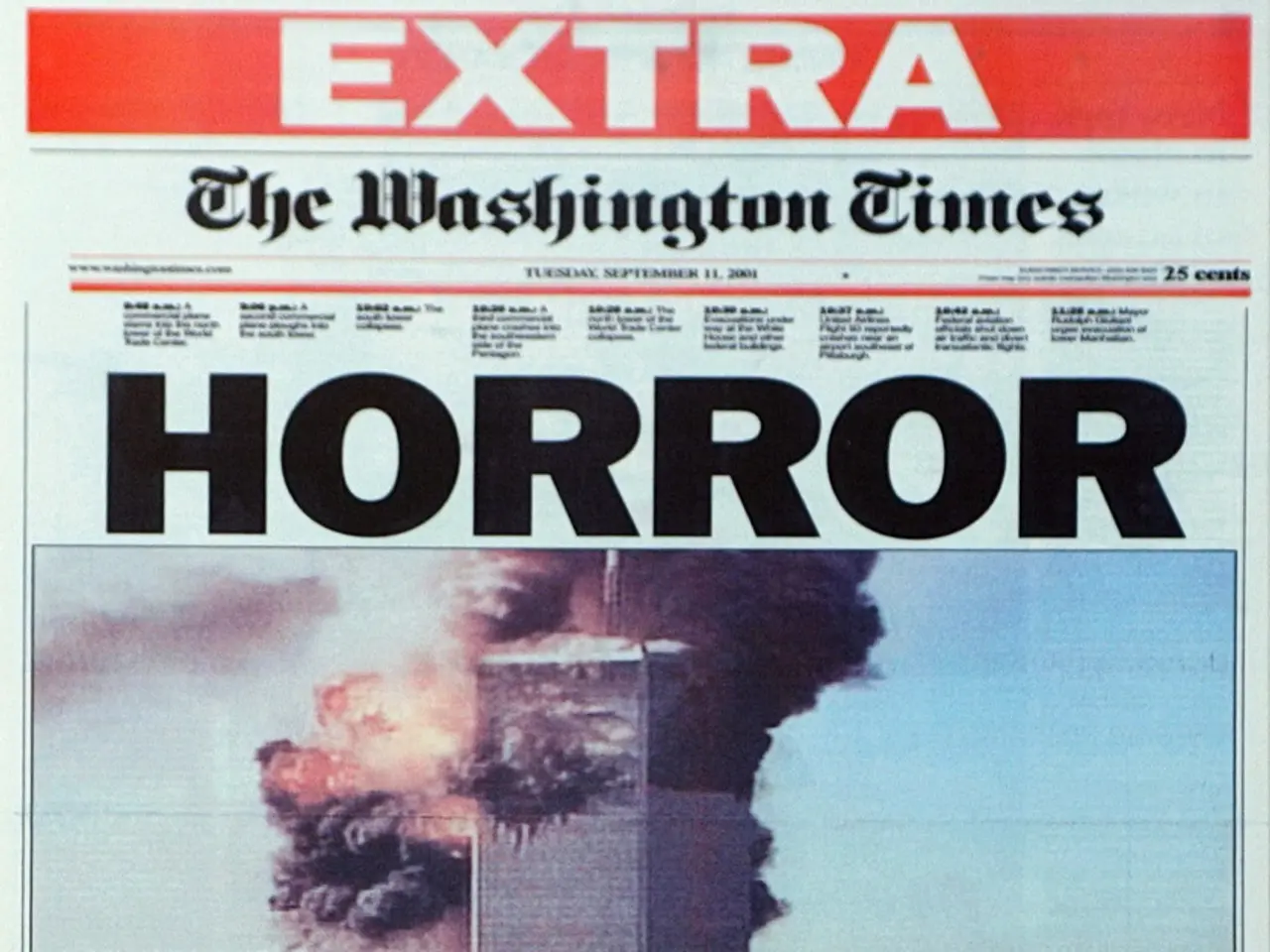Bringing Back Warrant Officers in Air Force for IT and Cyber Roles
IT and Cyber Fields Prioritized in Air Force Warrant Officer Program
Colorado - AURORA - In a bold move, the U.S. Air Force is testing the waters with the return of warrant officers, after a hiatus of over four decades. Gen. David Allvin, Air Force Chief of Staff, announced at the AFA Warfare Symposium on February 12, that the focus will be limited to Airmen in information technology (IT) and cyber career fields for the foreseeable future.
"We're treading carefully before we expand this initiative beyond these career paths," Allvin said, adding, "We want to make sure we're not just checking a box, but providing a meaningful role that fits the purpose."
The Air Force's decision to introduce warrant officers was announced earlier last week via social media leaks. Warrant officers, who perform technical roles rather than leadership duties in other military branches, have been absent from the Air Force and Space Force since 1980.
"We're locked in a battle for talent, and technical talent will be key to our success," Allvin stated emphatically. He explained that the warrant officer track could furnish Airmen a pathway to pursue a purely technical career without having to choose between that and a leadership position.
"For some, the passion is simply to code for their country," Allvin admitted. "We need to afford them the opportunity to grow in their field while still offering a long-term career trajectory."
Warrant officers could play a significant role in cyber and software domains, where technology advances at an exhilarating pace. A document on the unofficial Air Force amn/nco/snco Facebook page and the Air Force subreddit indicates that a training pipeline for warrant officers is being planned. The initial cohort would consist of 30 prior-service personnel, with the potential to scale up to 200 junior warrant officers and 50 senior warrant officers annually.
The success of the program hinges on measuring factors like how long warrant officers stay in service, their level of technical proficiency as warrant officers, and their impact on productivity and effectiveness in IT and cyber sectors. Gathering these metrics may take several years, warranting caution in expanding the initiative too hastily.
Allvin clarified that the Air Force will continue to cultivate leaders, and the warrant officer program should not be viewed as a replacement. He emphasized the importance of retaining the enlisted force, which he described as the envy of the world and the adversary's worst nightmare.
The warrant officer program was amongst several personnel changes announced during the keynote panel at the AFA Warfare Symposium. The service is taking 24 steps to reshape, refocus, and re-optimize for potential conflict against a near-peer adversary, such as China.
In parallel to the warrant officer program, the Air Force is exploring other pathways to nurture technical expertise. These include expanding technical tracks for officers, crafting technical tracks for enlisted Airmen, and developing tailored career categories in "critical technical areas, notably cyber and IT."
Other personnel changes include:
- Renaming Air Education and Training Command to Airman Development Command - This change aims to better integrate education and training efforts across the service, culminating in a more standardized Airman experience.
- Emphasizing "Mission-Ready Airmen" - Aligning various training programs, including Basic Military Training, tech school, doctorate, and fellowship programs, with the current and future threats the Air Force is preparing for, such as working in small groups on complex problems under contested conditions.
- Mission-Ready Airmen for Commissioning Programs - Developing future leaders who are adept at addressing complex problems within small units operating independently of higher command.
AFA Warfare Symposium - Personnel
Enrichment Data:
Background: Brief History of Warrant Officers in the Air Force
Warrant officers had served in the U.S. military up until the late 1970s, filling technical roles incredibly valuable in fields like aviation and field artillery. Their focus on technical mastery as opposed to leadership differentiated them from traditional officers. However, a wave of promotion led to too many warrant officers at upper echelons, and their role was gradually phased out beginning in the 1960s, completing in 1980 [1].
Revitalizing the Warrant Officer Corps: A Fresh Perspective for Technical Specialists
- Retaining Technical Expertise: By creating a career track for technical specialists that prevents them from being funneled into administrative or leadership roles, the Air Force aims to maintain and grow expertise in highly technical fields [1].
- Preserving Knowledge: Warrant officers serve as repositories of institutional knowledge, passing down critical insights from one generation to the next. This continuity is invaluable in quickly evolving domains like IT and cyber operations [1].
- Attracting New Talent: By offering a career path that rewards technical mastery and prioritizes hands-on work, the Air Force hopes to entice more skilled individuals to cyber and IT military careers [1].
[1] Roohi, S., & Gayer, B. (2023, February 13). Reintroducing Warrant Officers in Air Force: Focus on IT and Cyber Roles. Air & Space Forces Magazine.[2] Price, E. (2023, December 7). Air Force reinstates warrant officer corps for first time in 45 years. Military Times.[3] Taylor, J. (2023, December 6). U.S. Air Force reintroduces warrant officers after 45-year hiatus. Defense News.[4] Davis, C. (2023, December 6). Air Force to reinstate warrant officer program after 45-year hiatus. Defense Systems.
- The space force, a branch of the military, may potentially reintroduce warrant officers, following the Air Force's lead, to bolster their technical expertise in areas like IT and cyber warfare.
- As part of his efforts to modernize the military, politics might play a role in the revitalization of warrant officers and their implementation in space force campaigns.
- General-news outlets have reported an increased emphasis on technical roles in the military, with the reintegration of warrant officers representing a key element in fulfilling the military's demanding requirements for IT and cyber warfare.




